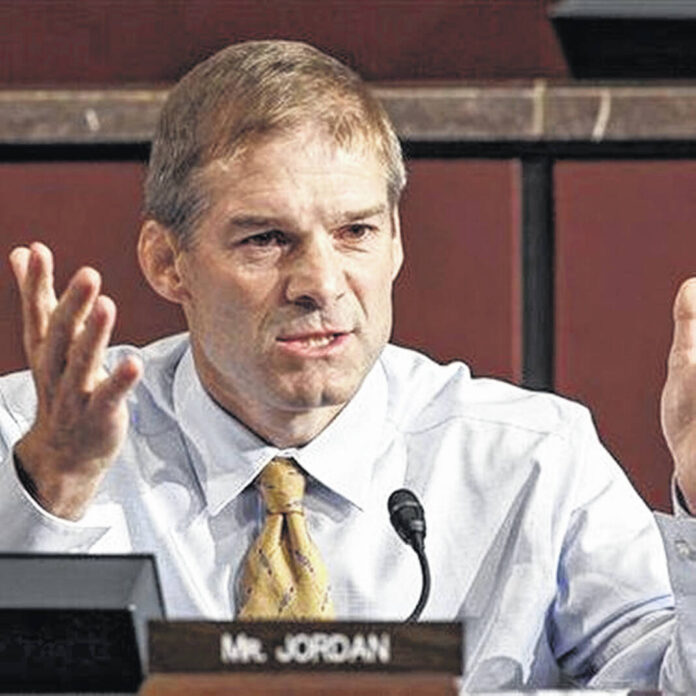WASHINGTON, D.C. — Democrats had their chance to fix illegal immigration and drug smuggling problems at the nation’s southern border, says U.S. Rep. Jim Jordan, R-Urbana. Now that he’s chair of the House Judiciary Committee, the Champaign County Republican wants to give it a try.
In his first hearing as chairman of the House Judiciary Committee, Jordan invited an El Paso judge, an Arizona sheriff, and a man whose 15-year-old son died from a fentanyl overdose to discuss the scope of the problem, and how to fix it.
“Our southern border, against all public comfort statements out of Washington, D. C., is in the worst shape I have ever seen it,” testified Mark Dannels, sheriff of Cochise County, Arizona. “When one looks at public safety, national security and humanitarian, our southern border is the largest crime scene in the country.”
“The United States government has simply not gone far enough in policing and shutting down the main route of this product (fentanyl) into the country, the southern border” agreed Brandon Dunn, who co-founded a non-profit group to spread awareness of the growing fentanyl epidemic. He said fentanyl poisoning is the top killer of people in the United States aged 18 to 45.
Data from U.S. Customs and Border Protection shows that fentanyl seizures spiked in recent months and that the southern border indeed is a hot spot for those seizures. But the Washington Post analyzed that data to show that those seizures are overwhelmingly at points of entry, not through unsecured areas between checkpoints, a point the committee’s top Democrat made on Wednesday.
A witness called by Democrats, El Paso judge Ricardo Samaniego, argued there’s no “open border” in El Paso, or an “invasion of migrants” or “hordes of undocumented immigrants committing crimes against citizens or causing havoc in our community.” He said most immigrants to his area present themselves to Border Patrol agents for processing and are referred to organizations that help asylum seekers unite with sponsors and relatives throughout the country.
“The humanitarian actions of our community do not come at the expense of local or national security,” said Samaniego. “The lessons we have learned is that perpetuating false narratives of invasion and ‘others’ when describing migrants is irresponsible, dangerous and can ensue in violence against our fellow humans.”
Democrats and Republicans largely talked past each other at the hearing. Jordan argued that many of the nation’s border problems stem from President Joe Biden’s decision to discontinue President Donald Trump’s immigration policies. He decried Biden’s decision to suspend deportations, halt construction of the border wall, and stop enrollment in the “remain in Mexico” program.
“Under President Trump the border was secure,” said Jordan. “Under President Biden, there is no border and Americans are paying the price.”
Jordan said his committee wants to pass immigration legislation “as soon as possible,” and will likely base it on proposals put together by committee members including Texas’ Chip Roy, Arizona’s Andy Biggs and California’s Tom McClintock. He said the committee will visit the southern border in person later this month to conduct another hearing.
The committee’s top Democrat, New York’s Jerrold Nadler, said the Biden administration expelled 1.1 million aspiring migrants last year. He disputed Jordan’s contention that the southern border is open and that asylum seekers are smuggling drugs. He said most of the nation’s fentanyl comes in through ports of entry and drug cartels enlist U.S. citizens to import it.
He questioned whether Republicans would be able to pass legislation since some in their caucus have expressed opposition.
“We all agree that our immigration system is broken,” said Nadler. “Our colleagues across the aisle cannot even negotiate in good faith with each other, let alone with us.”







